My Experience Attending the Opening Ceremony of the Korean Cultural Centre Nigeria (KCCN) 15th Anniversary
2025-06-06On 19 May 2025, I had the pleasure of attending the opening ceremony of the 15th anniversary of the Korean Cultural Centre Nigeria (KCCN), which was held in Abuja. As an honorary reporter, I had received a special invitation to attend the event, but was not sure I would be able to participate since I was residing in a different state. Luckily, I had a work meeting in Abuja that week and could respond positively. As a Nigerian, my love for Korean culture developed through my participation in Korean-related activities organised by the KCCN and other Korean communities online and offline. I still remember the first time I tried on a Korean hanbok during one of the events organised by the centre, and it was a fantastic experience that I still value. Over the past years, I have also attended other events organised by the centre, such as K-Pop Festivals, K-drama/K-Movie screenings, with each experience helping to deepen my appreciation and love for Korea, Korean history, and Korean Culture. As someone who has been looking forward to attending physical events organised by the centre in recent times, I was happy to be able to participate in this event, as it reminded me of my journey with Korean culture.
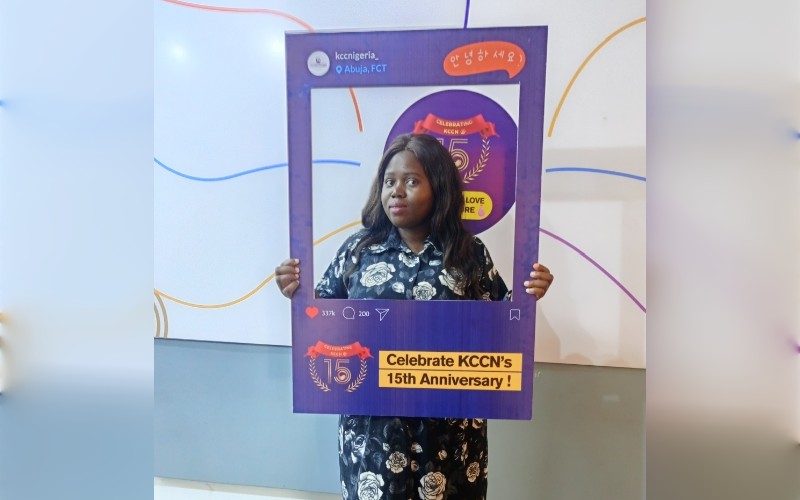
The event began at about past 3 pm with Honorary Reporters, K-Influencers, Hallyu Creators, media houses, Korean Culture enthusiasts, students of the King Sejong Institute, and other dignitaries in attendance. The opening ceremony featured a remark/welcome message from the Director of the KCCN, who reflected on the growth of the center over the last 15 years. He also re-emphasized the commitment of the center to promoting mutual understanding and positive relationships between the two countries. This was followed by a K-Pop dance performance by the Jump Arewa Dance Crew, which consists of some of the beneficiaries of the KCCN K-Pop dance program. Their performance was very energetic, with members singing along to the songs as they performed popular K-pop songs like Dope and Dynamite by BTS, and Set Me Free by Jimin. It was great seeing how much Nigerian youths have embraced Korean music and dance performances.
A major highlight of the event was the presentation of KCCN’s legacy and impact in Nigeria since its formation. The Korean Cultural Centre Nigeria (KCCN) was established on 24 May 2010 under the office of the Embassy of the Republic of Korea to enhance friendship, bilateral relations, and understanding between Korea and Nigeria through various cultural and educational programs. Over the last 15 years, the programs and impacts of the center in Nigeria have grown in four key areas: 1) education; 2) cultural events; 3) collaboration, and 4) community.
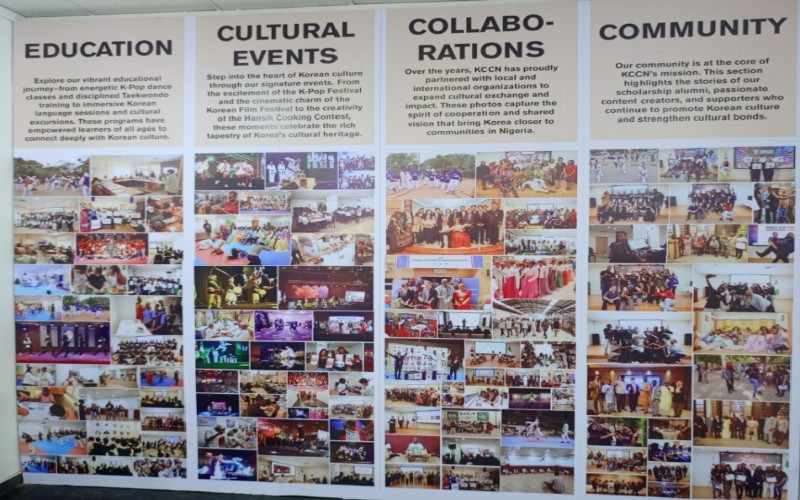
Over the last 15 years, the educational initiatives of the KCCN have empowered people of all ages to connect meaningfully with Korean culture through different activities such as K-Pop dance, vocal, and taekwondo classes, Korean language program through the King Sejong Institute (KSI), and through cultural excursions, etc. In terms of cultural events, the center organizes several cultural events annually to promote Korean culture such as the K-Pop Festival, Hansik Cooking Contest, Korean Film Festival, and Korean Writing and Speech Contest. To build lasting cross-cultural relationships between Korea and Nigeria, the KCCN also collaborates with numerous national and international partners to promote cultural understanding and shared experience. Finally, another area in which the center has made significant progress in the past years is in the establishment of a vibrant Korean community that consist of the Global Korean Scholarship (GKS) Alumni, Hallyu Creators, K-Influencers, and Korea.net Honorary Reporters who continue to promote and sustain Korean culture across different parts of Nigeria. In terms of impact, the KCCN has recorded over 300,000 learners, participants, and visitors, with an average of about 16,000 visitors/participants annually. The center has also hosted over 650 cultural program across major cities in Nigeria, including Abuja, Port Harcourt, Abeokuta, Ibadan, and Lagos.
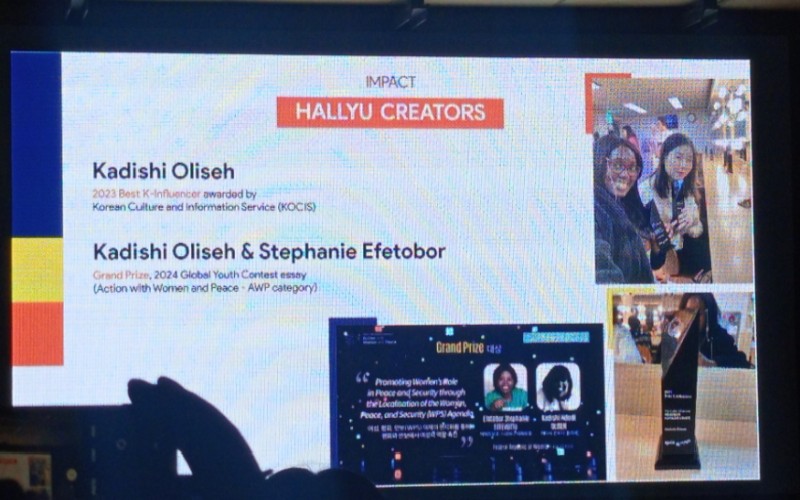
During the event, the presenter also showcased some of the beneficiaries of several programs and competitions organized by the center. I was inspired seeing and hearing the success stories of Nigerians who have excelled globally in several Korean-related competitions, with some even moving to Korea for work or studies, and still doing very well over there, all of which goes to show the positive impact of cross-cultural educational and exchange on personal and professional development.
The event also featured heartfelt speeches from some learners of the King Sejong Institute (KSI) at KCCN. They gave an overview of the center and spoke about how learning the Korean language has opened new opportunities for them. The KSI is a Korean language school that was established by the Korean government in 2007 to promote the Korean language and culture globally. Currently, there are over 240 KSIs in more than 80 countries, with the KSI in Nigeria centered at the KCCN based in Abuja, which represents the only KSI in Nigeria. The KSI at KCCN offers cultural programs and Korean language courses from beginner to intermediate levels, with classes taught by native Korean instructors, thus helping to build a community of Korean learners in Nigeria.
There was also a taekwondo performance by kids and adults learning Korean martial arts at the KCCN academy. Their discipline, focus, and agility throughout the performance drew applause from the audience and showed the role of Korean martial arts in building character and promoting fitness among Nigerians.
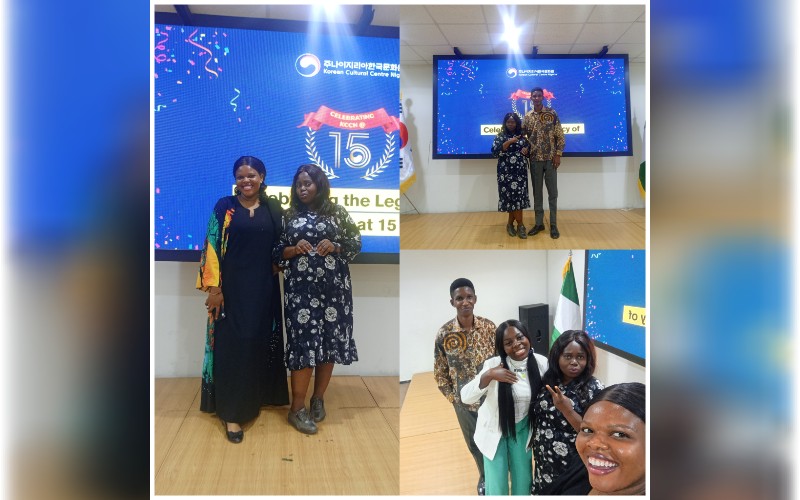
After the conclusion of the opening ceremony, there was a group photograph, after which guests enjoyed a light refreshment, giving everyone the opportunity to network, take personal photos, and share their memories about their experience with the Korean Cultural Centre Nigeria (KCCN). In all, over the past 15 years, the Korean Cultural Centre Nigeria has provided a safe space for Nigerians to explore and learn about Korean culture in creative, fun, and meaningful ways.
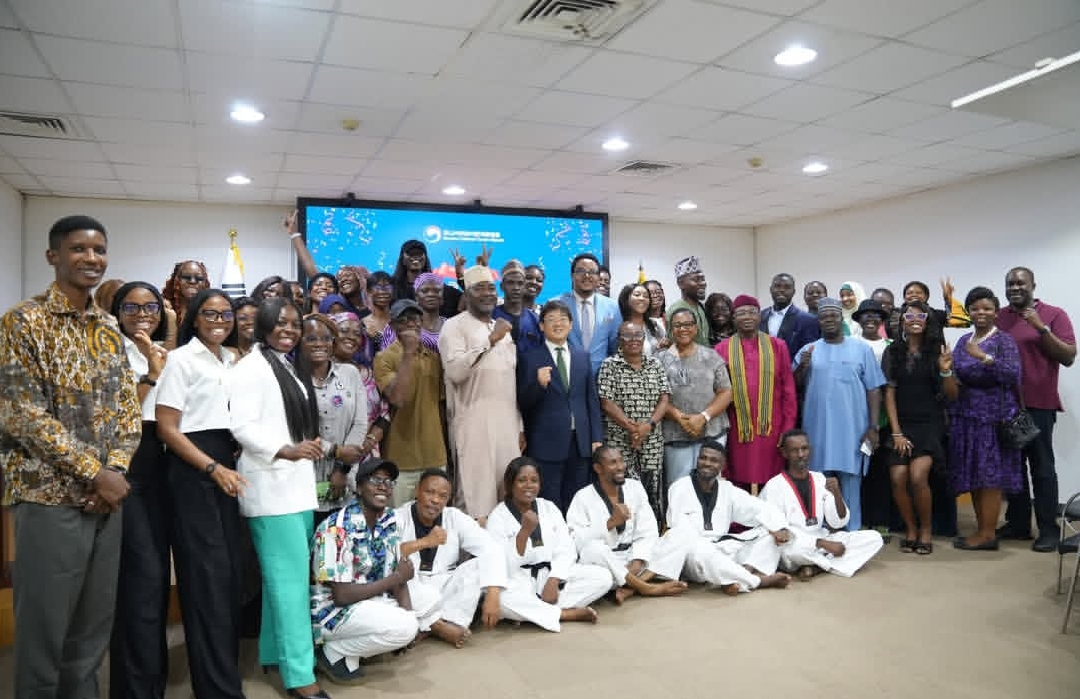
Overall, I am really glad I got to attend the event in person because it was a great learning and networking experience. I learned more about what the center has been doing over the years and took note of some programs that I can be a part of in the coming period. I also had the chance to interact with other influencers and fellow honorary reporters like Nsikak and Esther, people I have been communicating with online for years, but had never met in person. The turnout of people at the event reminded me of the strong and growing presence of Korean culture in Nigeria and how far we have come in embracing and celebrating it. Finally, if there is one thing this event made clear to me, it is that Korean culture in Nigeria is not just growing, but that it is here to stay.
How about this article?
- Like7
- Support0
- Amazing3
- Sad0
- Curious0
- Insightful1


